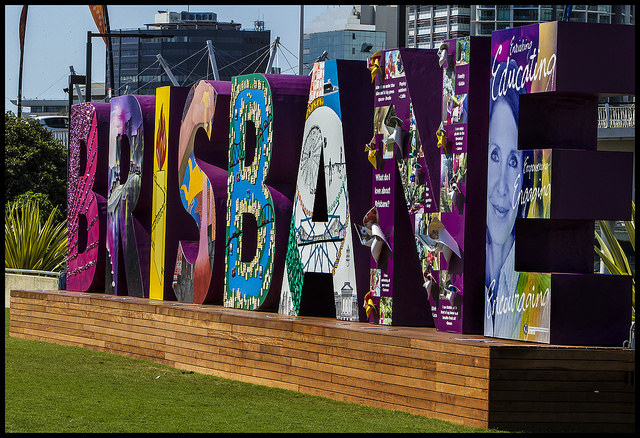Brisbane — G20 Leaders who met in Brisbane, Australia on the 15 and 16 of November need to focus on the real issues that matter for the world. This means they need to tackle rising inequality head-on or risk leaving millions of people trapped in poverty. They also need to ensure they are all doing their fair share to tackle the Ebola crisis.
The G20 brings together the world’s major advanced and emerging economies, represents 90 per cent of global GDP, 80 per cent of global trade and two-thirds of the world’s population. It’s a powerful group, and its efforts to boost growth and fix the global tax system are important and needed.
The Australian government has made boosting growth the centrepiece of its year at the helm of the G20. But growth for its own sake is not sufficient. What the world needs is inclusive growth, which benefits the poorest 40 per cent more than it does the top ten per cent. With inequality rising globally and with G20 countries home to more than half the world’s poorest people, the G20 needs to heed the warnings from Oxfam, the IMF, the OECD and even the Pope by acknowledging inequality is derailing poverty alleviation and threatens economic growth.
Oxfam’s report issued prior to the G20, ‘Turn the Tide: Why the G20 must act on rising inequality‘, reveals that since the Australian government took over the G20 presidency in December 2013, the total wealth in the G20 increased by U.S. $17 tr, but the richest one per cent of people in the G20 captured a staggering US $6.2 tr of this wealth — 36 per cent of the increase.
One key way to tackle inequality is to crack down on the use of tax havens and tax-dodging by multinational corporations. Figures released at the G20 by Oxfam show poor countries miss out on U.S. $100bn each year because of corporate tax avoidance. The G20-mandated global tax reform under way (carried out by the OECD) is a good first step, but other key issues that still need to be addressed — by all countries — include tax competition between countries, whereby poor countries reduce their tax rate to attract foreign investment, and the question of where profits are taxed — where a country is headquartered or where it makes its profits.
In addition to discussing issues of economic growth, shortly before the start of the summit Australian Treasurer Joe Hockey confirmed that leaders would also devote time to discuss the Ebola crisis.
The UN has warned that medical teams are stretched as they try to treat and prevent the spread of Ebola, which has claimed almost 5,000 lives in West Africa. Urgent action is needed to fill the gaps in the immediate response because the longer the battle against Ebola is waged on limited resources, the more costly it will be in terms of lives and money. The World Bank has warned that if the virus spreads to neighbouring countries, the economic cost could be between $27 billion and $32 billion by the end of next year.
If the G20 is to fulfil its ambition to protect the global economy, it cannot allow the economy of an entire region to be de-stabilised and must look at meeting the immediate needs of the emergency response and of a long-term recovery.
But four G20 countries — Argentina, Indonesia, Saudi Arabia and Turkey – are yet to make any contribution to the international response. Brazil, India, Mexico and Russia should be doing a lot more. Meanwhile, France should increase its efforts to provide an adequate leading response in Guinea, rapidly turning its pledges into aid.
The window of opportunity to bring the spread of Ebola under control is closing fast. The G20 is in prime position to provide the leadership and resources desperately needed. Hiding behind the generosity of others is unacceptable if we are to tackle the immediate emergency and ensure the long-term recovery of the region.
The UN is aiming to reduce the transmission rate by December 1 by treating 70 per cent of cases and ensuring 70 per cent of burials are done safely. This could be missed if concerted action from the G20 is not taken. While recent pledges are welcome, these need to be urgently turned into money on the ground to make a real difference.
Of the G20, the U.S., U.K. and EU, followed by Canada, China and Germany have shouldered most responsibility. Australia, Italy, Japan, South Africa and South Korea have made welcome contributions, but could do more in the face of continued and mounting needs.
As a key influence over the many drivers of poverty and inequality, the G20 can make a real difference, if it chooses to.
Steve Price-Thomas OBE is Deputy Advocacy and Campaigns Director of Oxfam International.
Photo: flickr/john



